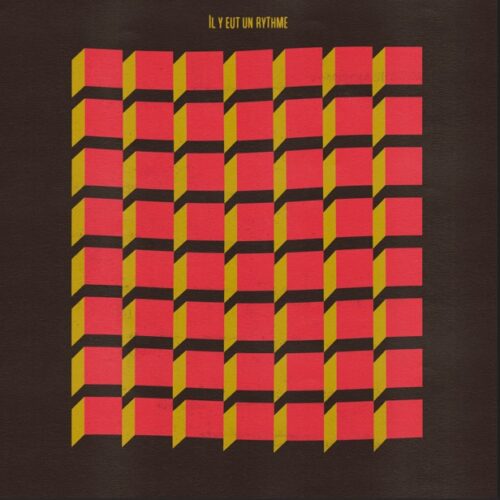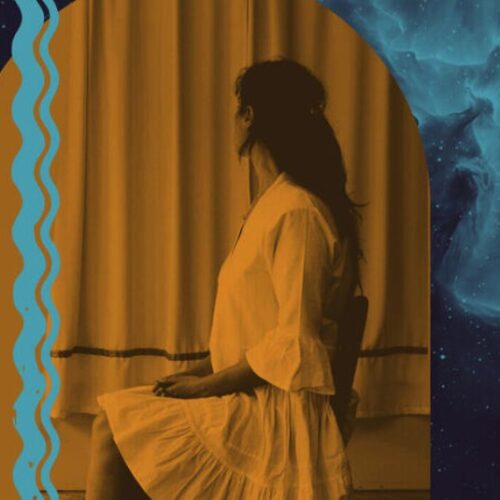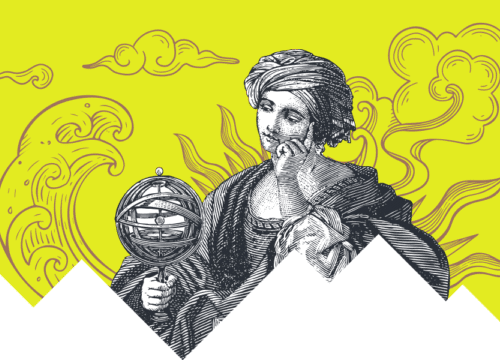Additional Information
Roland Pemberton, known in the hip hop world as Cadence Weapon, has been creating subversive bangers since 2005. He had humble beginnings in Edmonton, AB, and started rapping at the age of 13. He pursued journalism studies (he still writes for publications like Hazlit to this day) but then dropped out to focus on his music career.
Since then, he has become a force of nature in the rap world, using his wicked hot flow and experimental beats to change the minds of his generation. His latest album, Parallel World, nominated for the Polaris Music Prize, is his most politically conscious album yet, touching on themes of gentrification, systemic racism, inequality, and technological surveillance.
Roland took a moment to speak with PAN M 360 before his performance at POP Montreal, about the inspirations behind his new album and some of the tracks, his impact on social media. He also teased his upcoming book, Bedroom Rapper, which will be on shelves May of next year.
PAN M 360: One of the reasons I really enjoy your albums is because you can just throw them on and they’re banging hip hop songs, but if you really read into the lyrics, you’re like, ‘Holy shit, there’s so much thematic substance here.’ I mean, you’re obviously a well-read guy, a poet, and a journalist, and I guess you make what you could call, I don’t know, “thinking man’s rap”?
Roland Pemberton: (laughs) I’m glad you observed that because I love to have music that works on different levels. I wanted to have something that you can appreciate just on the surface level, if it’s like playing at a vintage clothing store or something, and you’re like, ‘Oh, this is cool.’ Then if you actually listen to the lyrics, I want there to be multiple levels that even go deeper. That’s a big thing for me—I want to have music that has a lot of depth. I feel like depth gives music longevity. I construct my albums similar to a book or something. I really want something that people could come back and listen to 10 years later and really enjoy it.
PAN M 360: Gentrification, surveillance, and systemic racism have been themes in your music before, but with Parallel World, you just went hard with those themes. It’s definitely your most politically-charged album to date. Was that kind of your plan from the beginning with this one?
Roland Pemberton: Well, before I made this record, I wasn’t planning to put out an album or anything. I didn’t really have like a big concept in my mind, but it was really just during the pandemic—I was just reading a lot of books and doing more research—but also thinking about what was happening with the George Floyd protests last summer, and just the kind of systemic upheaval that we were all going through as a society. That really just spurred me on to really feel like, ‘okay, I’ve always made these different kind of connections between institutions, and I’ve always wanted to like dig deeper and learn more about these things.’ I find that the pandemic really just lit a spark. And that really made me feel like an urgency to release something that was really of the moment. I’ve always been kind of subversive about these things in the past. You know, briefly touched on them in a line here and there, but I really wanted to have a whole concept record talking about these subjects.
PAN M 360: And the George Floyd protests, while it was the whole world kind of recognizing, there are so many stories that just get no coverage or mention.
Roland Pemberton: Oh yeah, for sure. I think the really big thing about George Floyd was this was the first time in my life where something happened like that and people reached out to me. Like my friends, my white friends were all kind of like, ‘Oh, I am so sorry.’ I realized it wasn’t just me and my family having these discussions, it wasn’t just something that it’s like, ‘oh, here we go again.’ We kind of broke through the colour barrier. I’ve always thought about microaggressions and the kind of systemic racism that I experience every day, but I was just really amazed that it was being acknowledged on television—and being acknowledged on this large scale that is never had been before. It really emboldened to be like, ‘okay, now’s the time to really just go all in.’
PAN M 360: So it was kind of catalyst for you?
Roland Pemberton: Yeah. We’ve been going through different uprisings in recent years. There’s just so much inequality in our society and #metoo was a big thing like that. It’s happening. Racism, sexism, and these things are really starting to get broken down and deconstructed in a much more nuanced way than they used to be.
PAN M 360: There were protests here weekly in Montreal so I assume there were in Toronto? Were you a part of any of them or did you just kind of witness them?
Roland Pemberton: I couldn’t really watch the video—that repetitious cycle of Black death. It was kind of hard for me and obviously with the pandemic, there’s a lot of fear around that. So I wasn’t really physically at a lot of the protests. But I think the thing that happened with me is I realized what my role could be as an artist. So I got more into crowdfunding and signal boosting other people’s initiatives. I made some posts about Little Jamaica here in Toronto I made this one post, “The Tale of Two Torontos”—comparing the Adamson BBQ guy, his GoFundMe, with the GoFundMe for Black business grants and that went totally viral. And I posted the GoFundMe and got thousands of dollars for the Black business grants. That weirdly was a real turning point for me with what I was doing with my album because I was just like, ‘wow I really am so much more powerful than I thought.’ (laughs)
PAN M 360: You realized you had a voice and people listened.
Roland Pemberton: Yeah. I used to use Twitter kind of just for jokes. I didn’t really think of it as an organizing tool the way that I do now.
PAN M 360: I saw Questlove’s movie, Summer of Soul, recently and one of the things it talks about is all of these artists like Sly and the Family Stone, and The 5th Dimension, they had a message to promote through their music, and it kind of got me thinking, ‘What if these guys had Twitter back then?’
Roland Pemberton: (laughs) Yeah, totally. It’s funny ‘cause obviously they’re playing this crazy festival in Harlem and their message lives on through time in a different way, but I do feel like there’s something that’s really instantaneous about it. It’s the good side of groupthink. It’s the good side of crowdsourcing. It was about empowering people.
PAN M 360: And I mean Sly has the album There’s a Riot Goin’ On. All of the music is pretty feelgood, but back then, he had an agenda for sure.
Roland Pemberton: I love that record. It actually inspired this album. That was one of the records that I kind of studied as oneg of the great records that come from times of upheaval and come from a sociopolitical lens. The music is like really cool and it can very chill, but if you delve into it, there are some very dark themes. I love how its kind of subversive that way.
PAN M 360: “On Me” is one of my favourite tracks on Parallel World, but it’s truly terrifying with its truth about how normalized surveillance has become. After listening to it the second time, I was afraid to pick up my phone.
Roland Pemberton: (laughs) That’s funny. Sorry about that. I just started noticing how insidious surveillance has become in our society. We’re at a point where you can give your friend your login for the Find my iPhone thing, and they can know where you are, and be like ‘hey I see you’re over there. Are you hanging out with what’s-his-name?’ And that to me is like, ‘oh god, we’re beyond the pale.’ It really shows you that the true purpose of the phone is a tracking device.
PAN M 360: You mentioned that you kind of wrote this album and all your other albums as kind of a book, but you’re actually writing a book called Bedroom Rapper? Is it all finished?
Roland Pemberton: It’s in the final stages, but I am still writing it. It’s mostly chronological, like a memoir style, but there are also some detours and essays about other subjects. Now I have a whole chapter that’s just all about DJing. I have a chapter about trap music and how it took over the world and just like my perspective on it. I have a chapter about Canada, what I call the Myth of Canada, just kind of deconstructing the cliches and stereotypes around the country, and why they exist and how they’ve affected me and my career. So there’s a lot of stuff that people would expect, but also some stuff that maybe they wouldn’t expect.
PAN M 360: “Ghost” is another of my favourite tracks and I think it might be because I like I just saw Backxwash live for the first time recently. The song is just so dark. What was it like collaborating on that one?
Roland Pemberton: It just hit her up. I was such a big fan of their last record that won the Polaris. I get so excited when I hear weird rap coming from Canada—just something that’s a little bit different. I love to see it succeed. So one of the first things that I thought of for this record was, ‘I gotta get Backxwash on a track.’ “Ghost” is a trapped-out banger in some ways, but it’s also about African cultural memory. The idea that my ancestors live through me and it connects all the way back to the motherland. So I’m trying to tap into that, just be kind of proud of that history, and just thinking about the ghosts of my ancestors.
PAN M 360: Has the live show changed over the years? When I’ve seen you it was mostly a DJ and you rapping.
Roland Pemberton: Yeah, so for this show at POP, I have a band. So the first half of the set is electronic and triggering the tracks. And then the second half is with the band. So there’s gonna be different vibes for sure.
Cadence Weapon plays POP Montréal on Friday, September 24th at 8 p.m., at L’Entrepôt 77 with Nora Toutain (3:30 p.m.), MAGELLA (4:30 p.m.), Waahli (5:40 p.m.) and Leila Lanova (6:50 p.m.).























